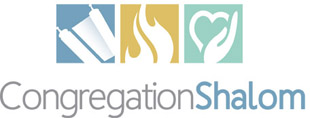Congregation Shalom and Community
Keeping Connected November 2023
Dear Friends,
I was recently teaching a 6th Grade Family Connection program introducing our students and their parents to the B’Mitzvah program at Congregation Shalom. I invited the families to work together to write a definition for “community” and then to give seven examples of groups that they thought fulfilled the definition. Their definitions clearly captured the idea that a “community” is a group of people who come together over shared interests, goals, and values, and that the members have responsibilities for the group and each other, while also offering support and encouragement to one another.
I was gratified to hear that the families included Congregation Shalom as one of their examples. From there our conversation switched to learning one of the Hebrew Words of the Week, which is ”kehillah”, the Hebrew word for community. When I asked them why they thought that Congregation Shalom was an example of a kehillah, it was heartwarming to hear the answers, both from the adults and the students. Each of the families felt impacted in a positive way by the sense of extended family that we try to cultivate in our congregation. When I asked them to offer specific examples, some of the things they mentioned was the fact that all of our members are part of the Caring Committee, that each member has a responsibility for one oneg a year, that we have a group of members who make Mi Sheberach afghans for members who are dealing with illness, that the students have a sense of friendship and shared experience with their classmates, that we celebrate each other’s simchas, and finally that we are there for each other during sad and challenging times.
As of late, another way to support one another and the larger Jewish community came up as a possibility. The head chaplain at Lowell General Hospital periodically reaches out to me to say that there is someone in the hospital who is Jewish and that they would be interested in a visit by a member of the clergy or a lay person. Sadly, I am often not able to do these visits for folks who are unaffiliated with the congregation. It can, however, be very meaningful for the person in the hospital as well as the person visiting them. Many congregations have what is known as a Bikkur Cholim group which is a group of lay people who go through an educational training program with the clergy to learn how to visit those who are sick, either in the hospital, in nursing homes, or at home. If there were enough people in Congregation Shalom who would like to take on this mitzvah and participate in some learning which introduces them to appropriate readings and prayers that might be comforting to those who are ill, I would be excited to set up a few teaching sessions. Please reach out to me at rabbi@congregationshalom.org to let me know you might want to participate.
Warm Regards,
Rabbi Shoshana M. Perry
